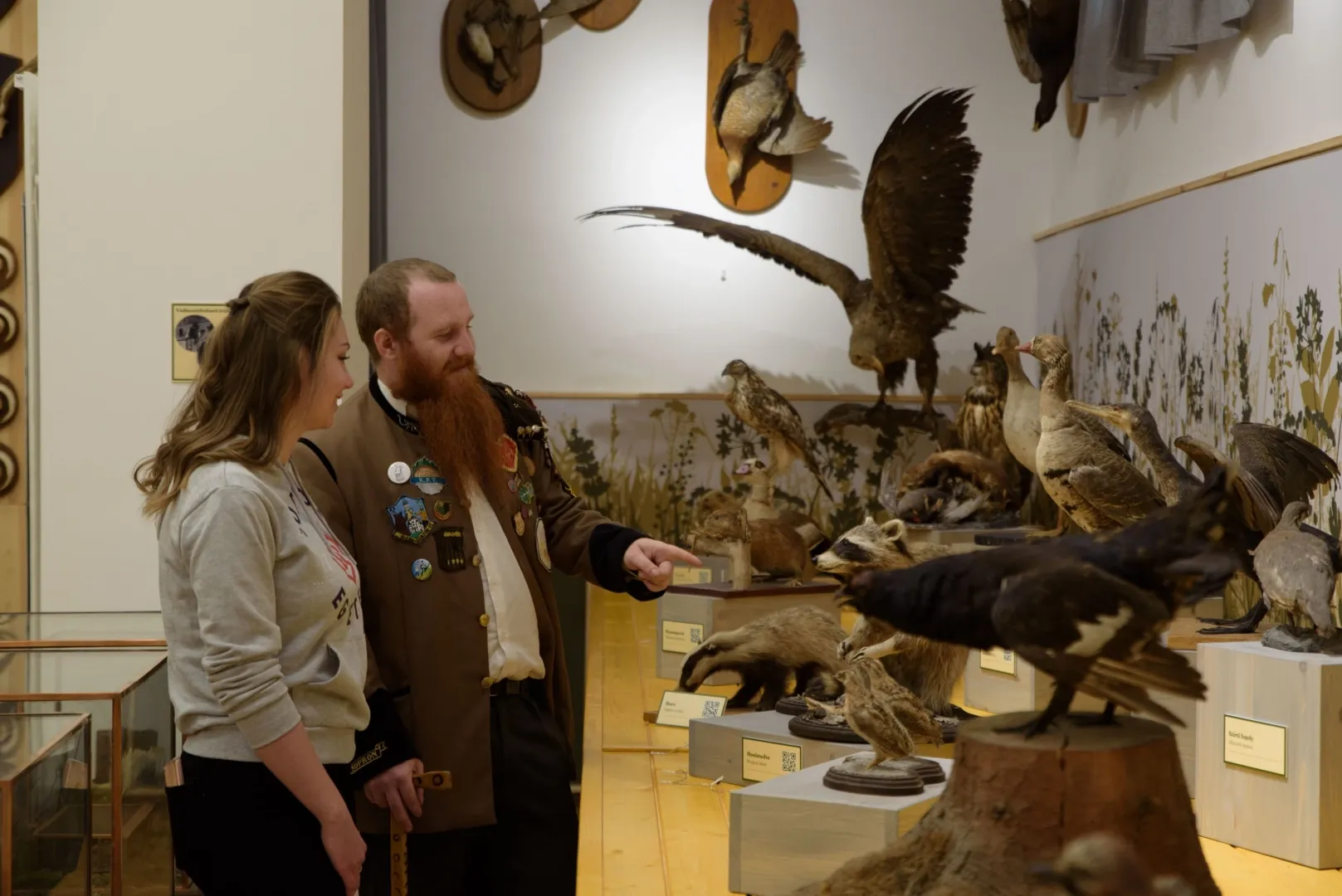Advancing Research for Sustainable Forest and Wildlife Conservation
 Programme Overview
Programme Overview
The PhD in Forestry and Wildlife Management at the University of Sopron is designed for researchers and professionals seeking to contribute to the sustainable management and conservation of forests, wildlife, and natural ecosystems. Offered by the prestigious Roth Gyula Doctoral School of Forestry and Wildlife Management Sciences, this program provides a rigorous academic foundation combined with hands-on research opportunities.
With eight specialized PhD programs covering diverse fields such as forest ecology, resource management, geoinformatics, and environmental pedagogy, students gain interdisciplinary expertise while working closely with industry-leading academics and researchers.
| General information | |
| Duration: | 4+4 semesters |
| Tuition fee: | 1850 USD / semester |
| Study mode: | full time |
| Intake: | September |
| Application period - self financed: |
From 1 March to...
|
| Application period - Stipendium Hungaricum scholarship: | mid November - mid January |
| Language of Instruction: | English |
| Faculty: | Faculty of Forestry |
About Roth Gyula Doctoral School
Established in 1993, the Roth Gyula Doctoral School of Forestry and Wildlife Management Sciences is the only PhD school in Hungary dedicated exclusively to forestry, wildlife management, and conservation sciences. Accredited by the Hungarian Accreditation Committee, the school brings together experts from the Faculty of Forestry, the Forest Research Institute (ERTI), and other research institutions.
Doctoral students benefit from state-of-the-art research laboratories, field stations, and international collaborations, ensuring they gain advanced knowledge and skills applicable to academic, government, and industry careers in environmental sciences.
Program Goals
The PhD in Forestry and Wildlife Management aims to:
-
Foster cutting-edge research in forest ecology, resource management, wildlife conservation, and geoinformatics.
-
Equip students with advanced skills in environmental analysis, biodiversity protection, and ecosystem sustainability.
-
Prepare graduates for leadership roles in academia, research institutes, and policy-making organizations.
-
Develop innovative methodologies for forest and wildlife management, geoinformatics, and nature conservation.
Specialization Areas
1. Ecology of Forest Ecosystems & Biological Foundations of Forest Management
Research focuses on forest biodiversity, climate adaptation, ecosystem stability, and sustainable forest management. Topics include soil microbiology, botany, dendrology, and genetic processes of woody plants.
2. Forest Resource Management
Analyzing forest stock characteristics, financial sustainability, and legal frameworks, this specialization integrates forest economics, planning, and policy analysis.
3. Forest Technical Knowledge
Students study forestry mechanization, energy tree plantations, water management, and road construction using advanced measurement and experimental techniques.
4. Wildlife Management
Focusing on game conservation, hunting management, wildlife health, and sustainable habitat development, this specialization includes trophy assessment, ballistics, and wildlife forage ground research.
5. Nature Conservation
This track addresses global environmental challenges and their application to Hungary, promoting conservation strategies, biodiversity protection, and policy development.
6. Geoinformatics
Students gain expertise in GIS, remote sensing, and land management for applications in forest monitoring, land-use planning, and precision forestry.
7. Forest and Environmental Pedagogy
A multidisciplinary field combining natural and social sciences, this specialization prepares students to develop educational methodologies for environmental awareness at all levels of education.
Career Opportunities
Graduates of the PhD in Forestry and Wildlife Management program can pursue careers in:
-
Academic and Research Institutions – University faculty, research scientists, postdoctoral scholars.
-
Government Agencies – Forest and wildlife conservation authorities, environmental policy advisors.
-
International Organizations – Roles in the United Nations, IUFRO, FAO, WWF, and other global conservation bodies.
-
Private Sector and NGOs – Environmental consulting, sustainability management, forest certification bodies.
Online Application for PhD Programs
Applicants to the University of Sopron's English-taught PhD programs must submit:
- MA/MSc Certificate: Provide a copy in English or German.
- Passport Copy: Ensure it is clear and valid.
- Proof of English Proficiency:
- A valid English proficiency certificate at B2 level or higher, such as TOEFL, IELTS, Cambridge English Qualifications (FCE or higher), Oxford Test of English (OTE) or other internationally recognized English tests, or
- Medium of Instruction Certificate, if your MSc or BSc was completed in English.
- Note: Native English speakers are exempt from this requirement.
- Application Fee Payment Confirmation: Upload the receipt.
- Research Plan and Proposal: Provide a detailed research plan.
- Scientific and Publishing Activity: Submit documented evidence of prior academic contributions.
- Additional Documents: Include recommendation letters, motivation letter, and/or a CV.
Important: If any document is not in English or German, attach a certified translation.
Why Choose Us?
-
Hungary’s leading forestry and wildlife PhD program, with a strong academic heritage and modern research facilities.
-
International collaboration opportunities, including research exchanges and partnerships with leading universities and organizations.
-
Multidisciplinary expertise covering forestry, wildlife management, ecology, and geoinformatics.
-
Access to Hungary’s National Forestry Library, one of the most comprehensive forestry research collections in Europe.
🌿 Advance your expertise in forestry and wildlife conservation with the PhD in Forestry and Wildlife Management at the University of Sopron. Apply today!
📥 Download the Study Plan
Contact the Faculty of Forestry:
Dr. Ferenc Facskó PhD
Coordinator, Faculty of Forestry
📞 +36 (99) 518-258
✉️ facsko.ferenc@uni-sopron.hu










